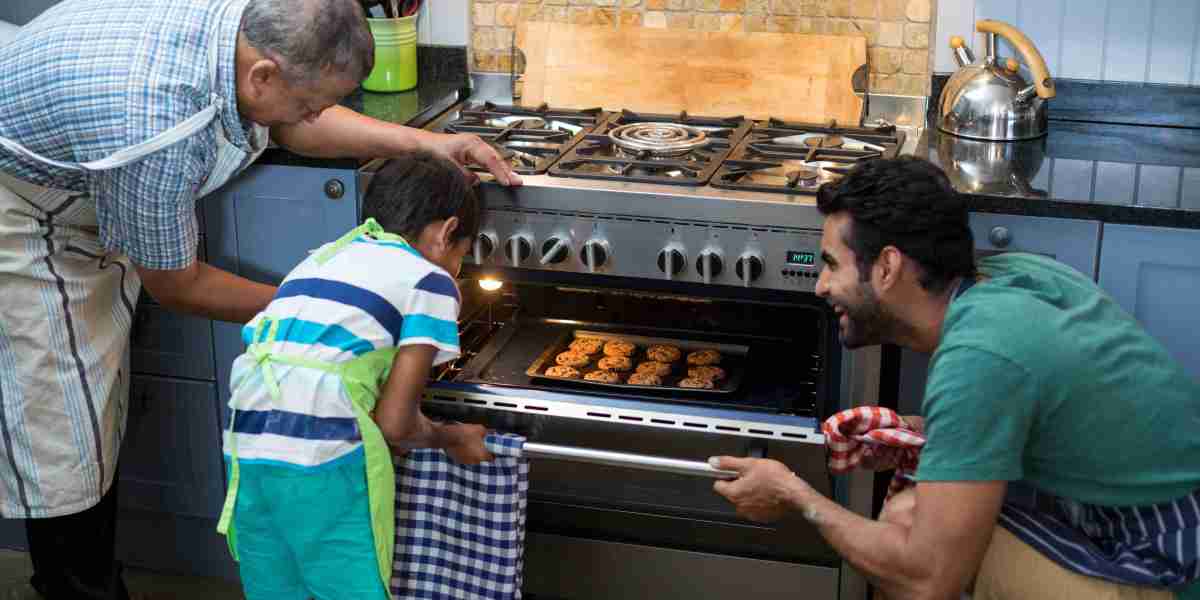Understanding Built-in Electric Ovens: A Comprehensive Guide
In modern cooking areas, built-in integral electric ovens ovens have ended up being a standard feature, providing benefit, effectiveness, and a stylish integration into kitchen style. This post aims to inform homeowners and cooking lovers about the benefits of built-in electric ovens, essential considerations when choosing one, and maintenance ideas to guarantee lasting functionality.
What is a Built-in Electric Oven?
A built-in electric oven is designed to be installed within cabinetry or walls, seamlessly mixing into the kitchen's architecture. Unlike standalone inbuilt ovens, these designs conserve floor area and can be positioned at eye level, assisting in simple access and tracking while cooking.
Benefits of Built-in Electric Ovens
- Area Efficiency: These ovens use vertical space, making them ideal for smaller cooking areas or those seeking to maximize counter area.
- Aesthetic Appeal: Built-in ovens provide a tidy and modern appearance that enhances the kitchen's overall style.
- Ergonomics: They are set up at comfy heights, decreasing the pressure on the back and knees, especially when loading or discharging meals.
- Advanced Features: Many built-in electric ovens featured high-tech features like smart controls, convection cooking, and self-cleaning alternatives, which can make cooking easier and more effective.
- Improved Functionality: Models often include extra functions such as numerous cooking modes, timers, and temperature probes.
Secret Considerations When Choosing a Built-in Electric Oven
When selecting a built-in electric oven, a number of factors need to be taken into consideration to ensure it meets your cooking needs and fits within your kitchen layout.
Size and Capacity
Built-in electric ovens typically come in numerous sizes. It's vital to measure the allocated area to ensure a correct fit. Here are typical sizes:
- Single Oven: 24 to 30 inches wide, appropriate for a lot of cooking tasks.
- Double Oven: Two different compartments, permitting you to cook several meals at various temperature levels.
- Wall Ovens: Available in plus sizes, suited for substantial cooking experiences.
Features
Selecting features that line up with your cooking routines is vital. Consider the following options:
- Convection Cooking: Distributes heat evenly for consistent results.
- Smart Technology: Enables push-button control and pre-heating through smart device apps.
- Self-Cleaning: Simplifies upkeep and cleaning processes.
- Steam Cooking: Adds moisture to meals for better cooking outcomes.
Setup Requirements
Zanussi 60cm Built-In Electric Oven – Shop Now! electric ovens need appropriate electrical wiring and ventilation choices. It's recommended to seek advice from specialists during the setup phase to satisfy electrical codes and ensure safety.
Cost Range
The expense of built-in electric ovens can vary significantly from budget plan choices (₤ 600 - ₤ 1,200) to high-end models (₤ 2,000 and above). Consider your budget and cooking frequency when making a selection.
| Cost Range | Features | Best For |
|---|---|---|
| ₤ 600 - ₤ 1,200 | Basic functions, manual controls | Casual cooks |
| ₤ 1,200 - ₤ 2,000 | Convection, smart technology | Serious home cooks |
| Above ₤ 2,000 | Premium materials, advanced features | Expert chefs or gourmet cooking lovers |
Upkeep Tips for Built-in Electric Ovens
Guaranteeing that an electric oven built in runs effectively involves regular upkeep. Here are some useful pointers:
- Regular Cleaning: Wipe down the door and inside the oven after each usage to avoid grease accumulation.
- Self-Cleaning Cycle: Utilize the self-cleaning function regularly (if readily available). Follow the producer's directions for optimal efficiency.
- Examine Seals and Gaskets: Inspect the door seals for wear and tear to maintain cooking effectiveness.
- Calibrate Temperature: Regularly check and calibrate the oven's temperature for accuracy cooking.
- Professional Servicing: Schedule annual upkeep talk to certified service technicians, especially for advanced designs with numerous electronic parts.
Regularly Asked Questions (FAQs)
1. Are built-in electric ovens more efficient than traditional ovens?
Yes, built-in electric ovens typically have better insulation and functions like convection cooking that can prepare food faster and evenly, conserving energy.
2. Can I install a built-in electric oven myself?
While some helpful people might choose to attempt a DIY installation, it is recommended to hire a professional to make sure safe and compliant installation.
3. How much power does a built-in electric oven use?
Usually, built-in Top-Quality SIA 60cm Stainless Steel Electric Oven ovens take in between 2,400 to 5,000 watts, depending on the design and functions. Constantly refer to the producer's specs for precise figures.

4. Do built-in electric ovens need unique cabinets?
Yes, Cookology FOD60SS 60cm Built-In Electric Oven electric ovens require customized cabinets or wall enclaves that support their weight and enable proper ventilation. Make sure that the cabinetry complies with setup guidelines detailed by the manufacturer.
Built-in electric ovens are a valuable addition to any modern kitchen, providing an array of features that make cooking easier and enjoyable. By understanding the advantages, choice criteria, and maintenance requirements connected with these ovens, consumers can make informed choices that align with their cooking needs and way of life choices.

